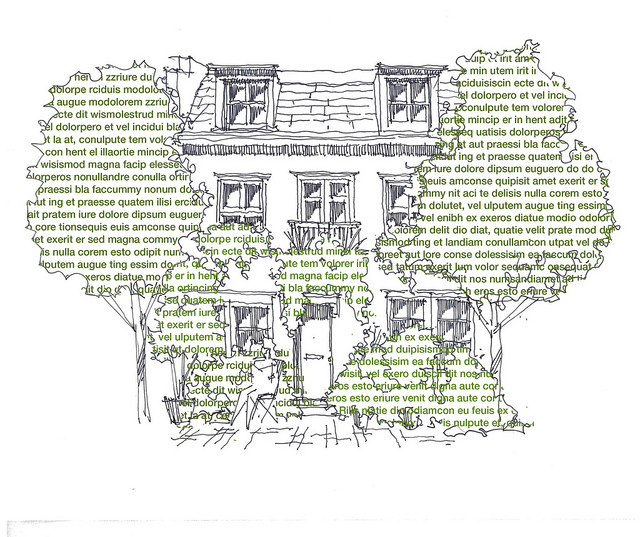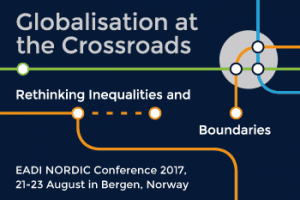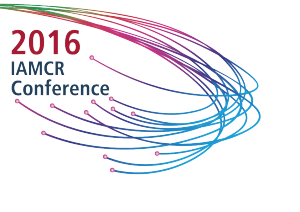Epistemologies of the South and Communication: Call for Papers

|
Call for Papers Vol. 5, nº 2 (December 2016) Epistemologies of the South and Communication Imaginaries, theorisations and social practices
Distinct insurgent trends against today’s hegemonic neoliberal order have been emerging in recent times – politically, socially and epistemologically – in both local and crosscutting world events as well as within social research. Although some continuums with previous movements on this matter can be identified, these trends have also included novelties in terms of political agency, tools and dynamics as well as knowledge production. The emergence of new forms of social mobilization by active citizens such as the 15-M movement in Spain, the Geração à Rasca in Portugal, the Passe Livre movement in Brazil, the Occupy Wall Street in the US or the Arab Spring across the Middle East and Northern Africa region, where technology and grassroots democratisation agendas played a key role, are chief examples of those local and crosscutting world events that have taken place in recent times within this new framework. In turn, the advent of new epistemologies within the theorization of the social sciences in and with the Global South, such as post-colonial research lines and agendas, which simultaneously include and go beyond Marxist and Critical theories agendas, are examples of the current counter-hegemonic trends we are witnessing within the realm of social and political research. Dominant scientific knowledge has been historically dominated by what had been called the epistemologies of the “North”. Post-colonialist authors like Boaventura de Sousa Santos have critically analysed and deconstructed this form of producing knowledge arguing that it simultaneously reflects and produces a politically, racially, epistemologically, economic and culturally hierarchical system which gives precedence to the Global North (the West) over the Global South (the Rest) – i.e., an ‘abyssal line’, to use Boaventura de Sousa Santos’ metaphor. By claiming a sole meta-narrative of modern progress and by considering modern forms of knowledge as universal, “northern [modern] epistemologies” permanently erase, render invisible or dismiss as less important any different knowledge or agenda that does not conform to Modernity’s ideological project. In face of this, the “epistemologies of the south” emerge as an epistemological proposal which creates a set of cognitive practices and knowledge validation criteria which allows other forms of knowledge, experiences and voices to be valued, and thus, influencing social practices and political choices. This epistemological proposal stems from the experience of the distinct social groups which have suffered in a systematic way with capitalist, patriarchy and colonial injustices – the domination triad that constitutes today’s dominant hegemonic paradigm. Communication Theory, specifically, has not remained aloof of these dynamics. Historically dominated by the same “imaginary transmitter” as all western sciences, it was grounded on the epistemologies of the “North”. Since the 1970s, although never mentioning the term “epistemologies of the south” or “post-colonial theory”, the “Latin American communication research line” (Paulo Freire, Juan Diaz Bordenave, Luis Ramiro Beltrán and many others) has, since the 1970s, subjected western and capitalist ways of understanding communication to criticism in order to propose an approach towards communication which establishes strong relationships between communication itself and the processes of maintenance and transformation of societies. Since the end of the 20th century, new ways of thinking and, mostly, practising communication fitting the “epistemologies of the south” proposal as such have started to emerge, recovering all debates but integrating new challenging analytical and empirical ingredients. Within the current context of potential paradigmatic transitions, this Call for Papers intends to discuss these theoretical and analytical proposals with articles that provide transformative ideas and practices to think about communication both from a theoretical and empirical perspective. Specifically, this call for papers invites all researchers to send contributions which fit in one of these research lines and topics:
This issue is organised in collaboration with the Centre for Social Studies (CES) of the University of Coimbra. Sofia José Santos, PhD, researcher at CES, will be the guest editor of this issue. Call for articles ends on the 4th September 2016. Articles should be preferably submitted in Spanish. Articles in Portuguese and in English may also be accepted. Prior to submitting proposals, please consult our submission guidelines at our journal website (http://reuredc.uca.es/index.php/cayp). For further information, please contact the Editor of the journal, Professor Victor M. Marí, PhD (University of Cadiz, Spain) victor.mari@uca.es Image via Flickr |
 New PhD opportunities at the University of Leicester
New PhD opportunities at the University of Leicester Call for Abstracts: New Directions in Media, Communication and Sociology (NDiMS) Conference
Call for Abstracts: New Directions in Media, Communication and Sociology (NDiMS) Conference Ørecomm Team to Gather at the University of Coimbra
Ørecomm Team to Gather at the University of Coimbra “Communication and Social Change – A Citizen Perspective” Published
“Communication and Social Change – A Citizen Perspective” Published C4D Network to Sum Up Global Communication for Development Practice
C4D Network to Sum Up Global Communication for Development Practice Entering Media and Communication into Development Conferences?
Entering Media and Communication into Development Conferences? IAMCR Conference 2016: Communication for Development Highlights
IAMCR Conference 2016: Communication for Development Highlights Glocal Classroom Revisited – Storytelling & Social Change Leicester-Malmö
Glocal Classroom Revisited – Storytelling & Social Change Leicester-Malmö I EvalComDev International Conference: Call for Papers
I EvalComDev International Conference: Call for Papers Looking for Media and Communication in Development Conferences: Devres 2016
Looking for Media and Communication in Development Conferences: Devres 2016